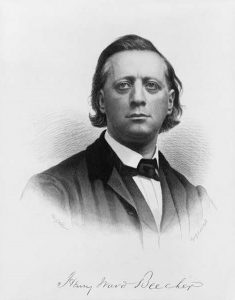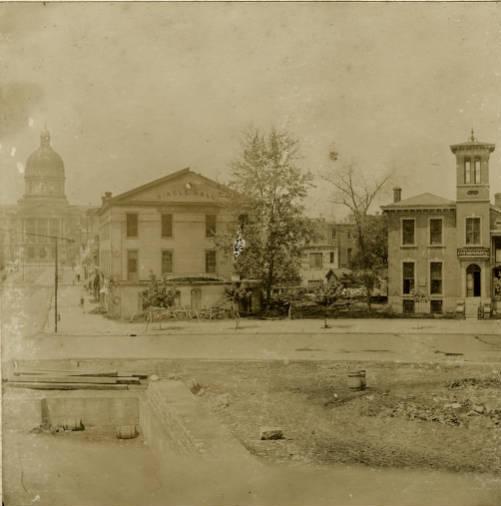
Photo info …
Credit: Library of CongressView Source
(June 24, 1813-Mar. 9, 1887). Beecher was born in Litchfield, Connecticut, son of the famous Presbyterian minister and revivalist Lyman Beecher. A graduate of Amherst College and Lane Theological Seminary, in 1837 Beecher became pastor of the First Presbyterian Church in Lawrenceburg, Indiana.

In 1839 Beecher accepted a call from the newly formed of Indianapolis. He combined his father’s pragmatic attitude toward theology and New School Presbyterian revival techniques with a more informal and personal style of preaching, which he believed was more suitable to western audiences. The combination was successful and helped make his church the largest Presbyterian congregation in the state.
Highlights of Beecher’s pastorate were the church’s move to its first permanent facilities in 1840, his first antislavery sermon on May 28, 1843, and his during the winter of 1843-1844. Published in 1844, these lectures on morality first brought Beecher national recognition and reveal his distinctive blend of bold preaching about taboo subjects with a conservative concern for social order.
Beecher’s activities were not narrowly confined to the ministries of Second Presbyterian. He was Stated Clerk of the Indianapolis Presbytery, served on the executive committee of the , was a member of the , and promoted the movements for temperance and common schools.
On a statewide level, he led revivals in several cities, served as a trustee of Wabash College, and was editor from 1845-1847 of the , renamed the after a merger in 1846. On October 3, 1847, Beecher left Indianapolis to become pastor of Plymouth Congregational Church in Brooklyn, New York, where he would become one of the most famous orators and influential figures of 19th – century America.

Help improve this entry
Contribute information, offer corrections, suggest images.
You can also recommend new entries related to this topic.

